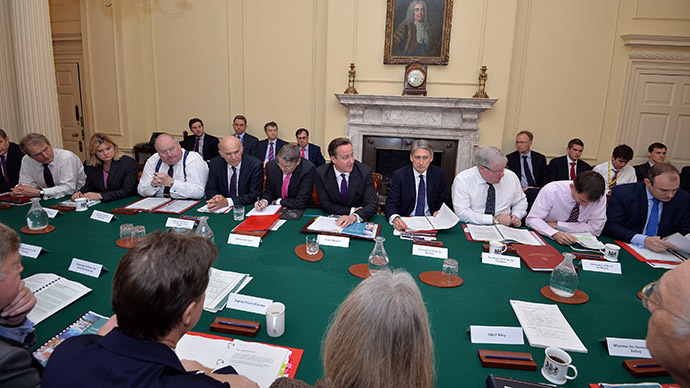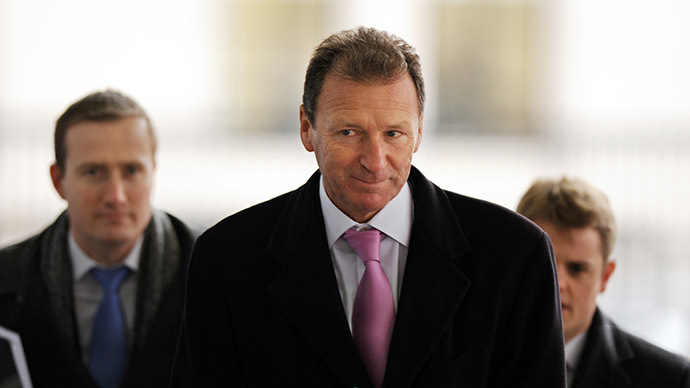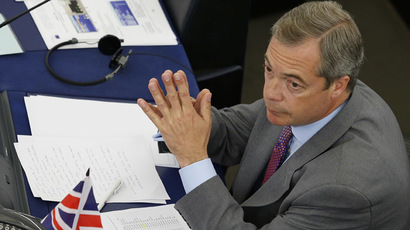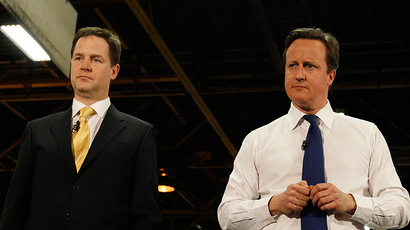Hung parliament coalition deals would be ‘messier’ than 2010, peer predicts

Forming a new UK coalition government in the event of no party securing an overall majority in May’s general election will be harder than it was in 2010, a top civil servant has said.
Speaking on BBC Radio 4’s Today program on Thursday, Lord O’Donnell warned that forming a future government could take a similar timeframe to those coalitions in mainland Europe.
“I think next time it could be even messier because the share of the main parties is declining, we know that. I think my successor will need to be preparing for all sorts of possible options,” he said.
“It may well be that we have a single majority party – I’m not making a forecast. I’m just saying that I think it’s sensible to always do the Boy Scouts thing and be prepared for all possible outcomes.”
O’Donell played a key role in the 2010 coalition negotiations, spending five days fleshing out the current Conservative-Liberal Democrat coalition deal.
In the interview, he advised his successor Sir Jeremy Heywood to factor in all eventualities and options, particularly as the 2015 election is among the most unpredictable in history.
The advice comes as the main Westminster parties strike out on the campaign trail, with almost all party leaders fearing the consequences a new coalition government could have in May.

Speaking on Thursday, the Scottish Conservative leader Ruth Davidson warned of a potential minority Labour government in 2015, with former Scottish National Party leader Alex Salmond drafted in as deputy prime minister.
“The idea of Ed Miliband as prime minister – with … Alex Salmond as deputy prime minister – scares the bejesus out of me,” she told BBC Scotland.
“And do you know why? Because I don't think Ed Miliband would stand up to the concessions that Alex Salmond would wring from him.”
However, Salmond has said he isn’t interested in being part of a future Westminster based government.
The SNP has also ruled out any type of alliance with the Conservative Party. It’s likely they would only strike a deal with a government led by the Labour Party.
New polls released by Lord Ashcroft this week indicate no political party will secure an overall majority needed to form a government in 2015, with the Labour Party fractionally ahead of the Conservatives.
The rise of new political parties, such as UKIP and the Greens, will mean votes will be distributed more widely than in previous national elections, particularly in major ‘swing seats’.
On Thursday, the Green Party said it was “deeply disappointed” that the UK’s media watchdog Ofcom ruled it was not a ‘major’ political party, and was unlikely to be included in TV election debates ahead of polling day.
“The media regulator has failed to grasp the fast-moving, fluid state of British politics today, and the fact that voters are seeking out the choice of real change,” Green party leader Natalie Bennett said.
“Ofcom should not be making that option harder to find, but ensuring voters have the chance to hear and judge the full range of political options today,” she added.














